Reishi mushroom is known for its antioxidant, anti-inflammatory, immune-boosting, anti-aging, stress-relieving, cancer-preventative, tumor-reducing, and heart-health benefits.
But what are the side effects of Reishi mushrooms? And how should they be used? These are some of the questions people new to Reishi mushrooms often ask.
This detailed guide will answer these questions. The article will also explain Reishi mushroom benefits and Reishi mushroom side effects. Keep reading to learn more!
What Are Reishi Mushrooms?
Reishi, also known as lingzhi mushroom, is the king of superfood mushrooms. This reddish-orange fan-shaped fungus has been used in Asian countries for many years for its medicinal benefits.
Mushroom Reishi, known as Ganoderma Lucidum in the botanical community, is a medicinal fungus with a glossy dark exterior and woody texture. Native to the hot and humid parts of the Asian continent, Reishi is called Mannentake in the Japanese language.
Read More: Learn about Reishi mushroom look-alikes.
The Reishi mushroom grows on the base of deciduous trees, and you can consume it fresh. However, the bitter taste can be off-putting for many people looking to take advantage of Reishi mushroom benefits. Supplements are a popular alternative for those who want to reap the Reishi mushrooms benefits.
Reishi mushrooms, rightly nicknamed the "herb of spiritual potency," has paramount nutritional value.
Read More: Have you ever heard of maitake mushrooms? See the maitake nutritional values.
Reishi contains a host of bioactive molecules responsible for its numerous benefits. Below, we will examine these benefits.
14 Health Benefits Of Reishi Mushrooms

Reishi extract can produce positive results in many health problems. Some of the most popular Reishi mushroom health benefits include fighting the following health problems:
- High high cholesterol
- High blood pressure
- Heart disease
- Asthma
- Stronger immune system
- Fatigue
- Flu symptoms
- Human Immunodeficiency Virus (HIV)
1. Helps Kill Cancer Cells
Reishi fights cancer cells. The immune-enhancing property of Ganoderma Lucidum is responsible for Reishi's anti-cancer benefits(1).
The mushroom is also known for its cancer prevention benefits. Its bioactive ingredients stimulate the immune system, whereas triterpenoids inhibit the growth and invasion of cancer cells.
A 2004 study(2) tested the anti-cancer properties of various medicinal superfood mushrooms. Reishi demonstrated the highest ability to kill cancer cells.
Reishi mushroom puts a brake on cell division and induces death (apoptosis) in tumor cells. These anti-tumor benefits of Reishi mushroom are helpful in(3) lung, soft tissues, liver, white blood cells, breast, ovary, colon, and bladder cancers.
Reishi also blocks the formation of new blood vessels that provide nutrition to the tumor cells. In a study of prostate cancer(4), researchers observed the Reishi vascular endothelial growth factor (VEGF) and transforming growth factor-beta (TFG-B). These two factors are primarily involved in making new blood vessels in cancers.
Research has demonstrated the benefits of the red Reishi mushroom in patients with advanced cancer. 65% of cancer patients reported increased life quality(5).
Read More: See how Lion's mane fights cancer.
2. Protects Against Stomach And Liver Injuries
Appearing on the primary Reishi mushroom benefits list, Reishi's ability to fight against stomach and liver injuries is revered in the medicine industry. Information from Animal studies(6) shows that Reishi mushroom extract has a potent protective effect on the liver and stomach.
The extract of the red reishi mushroom protects the liver from carbon tetrachloride damage. One study(7) measured hepatic markers for liver injury (aspartate and alanine transaminases). The biochemical markers remained normal even after the administration of hepatotoxic substances. Many other studies have also demonstrated(8) the protective effect of the Reishi mushroom on chemical-induced hepatic injuries.
Reishi mushroom supplement is also beneficial in acetic acid-induced gastric injuries. The red Reishi mushrooms accelerated the healing of gastric ulcers by 40-56%. Orally administered polysaccharide fraction of Reishi mushroom restored(9) the gastric mucus and prostaglandin levels in mouse models.
3. Alleviates Symptoms Of Asthma

Reishi mushrooms alleviate the symptoms of Asthma and prevent Asthma attacks.
Chronic inflammation of the airways is one of the factors leading to the development of Asthma. Allergic substances also trigger Asthma, obstructing the airways and causing breathing difficulties.
Ganoderma mushroom is a powerful medicinal mushroom with anti-inflammatory and anti-allergic properties(10). By leveraging the Reishi allergy benefits, people with Asthma can reduce the risk of suffering from attacks. Several studies have also documented the role of powdered Reishi mushrooms in alleviating the symptoms of Asthma.
A herbal formula containing 62.5% of lingzhi mushroom is safe and well-tolerated(11) in adults with Asthma. The Ganoderma Lucidum benefits for asthma aid in improving oxygen utilization, thus strengthening respiratory functions in people with Asthma. Research shows that the Reishi benefit for Asthma is equally effective(12) as systemic steroids in controlling Asthma.
4. Combats Oxidant Injury
The antioxidant benefits of Reishi extract prevent chronic diseases and cancer. Oxidant injury increases the risk of mutation, which ultimately causes cancer.
Read More: See how cordyceps mushroom fights cancer.
Antioxidants also protect immune system cells. Reishi mushrooms, therefore, boost the overall immunity in the consumer's body.
Many harmful oxygen-derived free radical molecules can damage the cells in our body. Superoxide dismutase (SOD) is an enzyme that breaks down these oxygen-derived free radicals.
Polysaccharides of Reishi mushrooms mimic(13) the function of SOD. The hot water extract of the mushroom also had protective actions(14) against the DNA-damaging effects of free radicals.
A double-blinded placebo-controlled study(15) investigated the effect of lingzhi mushroom supplements to prove the red Reishi benefits in combating oxidant injury. Researchers gave patients a 4-week supplementation of the Reshi mushrooms.
Researchers assessed the patients for the risk of coronary heart disease, DNA damage, inflammation, liver and renal toxicity, and immune and antioxidant status.
The coronary heart disease biomarker profile improved after using Reishi mushroom extracts for ten days. The follow-up study showed no evidence of renal, liver, or DNA toxicity with the mushroom intake.
5. Fights Infections
Reishi mushroom inhibits the replication of many pathogenic viruses(16). These include Herpes Simplex Virus (Type 1 and 2), Hepatitis B virus, Influenza A, and vesicular stomatitis virus. Reishi also has Inhibitory effects on HIV(17) and Epstein Barr Virus (EBV).
EBV is the cause of infectious mononucleosis, commonly known as the kissing disease. The mushroom also has anti-fungal properties.
Read More: See the benefits of maitake mushrooms on immune health.
6. Helps Adapt To Stress And Promotes Mental Clarity

Reishi mushrooms are a part of the adaptogen family of mushrooms. Adaptogen mushrooms can help the body to adapt and cope with stressful situations.
They relax the mind, helping the body to process stress. Therefore, consuming Reishi mushroom capsules can reduce the risk of depression.
Read More:See how Reishi fights depression.
Stress can negatively impact the immune system. Reishi mushroom powders contain an adaptogenic herb called Ashwagandha. The root of this herb is long known to help balance bodily functions.
The Reishi supplement also plays a role in calming(18) the frazzled nerves and overactive mind. Lingzhi mushroom also reduces(19) body aches, pain, and mental irritability.
Stress triggers the release of steroid hormones from the adrenals into circulation. These hormones maintain and restore stress-related body homeostasis. Reishi supplement improves the function of adrenal glands, helping the body to adapt to stress. Reishi also fights anxiety, eliminating nervousness and helping you relax.
7. Reishi Offers Sleep Benefits
A research study performed in 2021(20) determined that Reishi mushrooms promote sleep through a gut microbiota-dependent and serotonin-involved pathway in mice. While researchers used an animal model in this research, it proves that taking Reishi mushrooms at the right time improves sleep quality in people.
Read More: Learn more about the Reishi sleep benefits.
8. Lowers Blood Sugar In Diabetes
Reishi mushroom helps with blood sugar control in people with diabetes.
In one study, the mushroom exhibited a significant hypoglycemic effect(21) on diabetic mice. Reishi lowered blood sugar levels by up to 50%, and the hypoglycemic effect persisted for 24 hours. There was also an increase in plasma insulin levels, an essential hormone in lowering blood sugar.
Researchers in another study(22) gave adults with type 2 diabetes polysaccharide supplements of reishi mushroom. Seventy-one patients received the mushroom extract or placebo for 12 weeks.
At the end of the study period, researchers measured the plasma glucose levels and glycosylated hemoglobin (HbA1C). There was a significant decrease in both values, indicating the hypoglycemic effect of Reishi.
Read More: See how Chaga fights diabetes.
9. Has A Role In Heart Health
Triterpenes and beta-glucans derived from Reishi mushrooms reduce the bad cholesterol (LDL) and total cholesterol. The Reishi mushroom pills also can lower blood pressure levels through their angiotensin-converting enzyme-like effect.
Reishi also reduces platelet aggregation(23) and inhibits cholesterol synthesis.
Another randomized, double-blind trial designed to investigate the Reishi mushroom powder benefits on the heart reported(24) no significant changes in overall heart health. Therefore, additional studies are required to establish the help of the Reishi mushroom in heart health.
10. Boosts The Immune System And Immune Function
A vital benefit of the Reishi mushroom is that the fungus improves the body's ability to fight health problems. Reishi mushroom boosts the immune system and surveillance in the body.
The red Reishi mushroom capsules also enhance(25) the proliferation and maturation of critical immune system cells, including T and B lymphocytes, Natural Killer cells, dendritic cells, and spleen cells. Reishi also alters(26) the inflammation pathways in white blood cells.
11. Reishi Helps With Blood Pressure Treatment

According to data from the CDC(27), approximately half—47% or 116 million—of Americans have high blood pressure. Also known as hypertension, high blood pressure is a dangerous condition with a range of long-term complications, including heart disease, stroke, and even heart attack.
However, Reishi mushrooms can also help with blood pressure management.
A research study performed in 2014(28) concluded that Reishi effectively reduces high blood pressure levels. A 2018 research study(29) concluded that after seven weeks of using Reishi, the mushroom's bioactive compounds managed to lower blood pressure in experimental animals.
Read More: See how Chaga fights high blood pressure.
12. Reishi Promotes Hormonal Balance
Reishi improves hormonal balance in the human body. For example, Reishi helps balance out the levels of androgen hormones in women, reducing the risk of PCOS (Polycystic Ovarian Syndrome). Because of its hormone-balancing benefits, Reishi helps with reproduction, lowers infertility, and improves the wellness of women in menopause age.
13. Reishi Mushroom Supplements Improve Skin Health
Reishi benefits people who want to avoid premature aging and maintain a youthful look by offering skin health benefits. The mushroom's anti-inflammatory properties are vital in maintaining healthy-looking skin. What's more, the mushroom also helps with the following:
- Skin lightening
- Skin detoxification
- The mushroom battles the aging of the skin
- The mushroom prevents acne
- Reishi improves both dry and oily skins
Read More: Learn more about the Reishi for its skin benefits.
14. Ganoderma Lucidum Promotes Hair Health
Non-powder and powder forms of Reishi carry hair health benefits. Some of the hair health benefits offered by the mushroom include:
- The mushroom prevents baldness in men
- It prevents premature hair discoloration
- The mushroom reduces scalp inflammation
What Are the Reishi Side Effects?

Although the Reishi mushroom is power-packed with many health benefits, it is not without side effects. However, you can enjoy the Reishi powder benefits without worrying about the Reishi side effects. The only thing you have to do is use the proper Reishi dosage.
Before using Reishi mushroom benefits, always consult your healthcare provider. It is also wise to inform them of existing medical conditions and medications.
Pregnant and breastfeeding women should consult a doctor before using Reishi mushroom capsules or other Reishi supplements.
Read More: Can you take Reishi while pregnant?
Reishi's powdered form is possibly safe for up to 16 weeks. However, Reishi mushroom side effects result from using the mushroom at a higher than recommended dosage. The side effects of Reishi mushroom are:
- Rashes and skin sensitivity
- Nausea
- Insomnia
- Itching
- Dizziness
- Changes in bowels (diarrhea or constipation)
- Blood in stool
- Nosebleed
- Liver injury
- Respiratory allergy
- Dry mouth
- Stomach upset
- It may significantly lower the blood pressure
- It may significantly lower the blood sugar levels
- Increases the risk of bleeding in people with bleeding disorders
How Can The Mushroom Be Used?
There are several ways to enjoy the Reishi mushroom effects. To enjoy the Reishi immune support, you can take the mushroom raw. You can also enjoy Reishi tea.
You can use the fruiting body of Reishi to make soups or tea. You can mix the Reishi tea with honey or fruit juice.
Read More: What is the Reishi mushroom taste?
The Reishi supplement is available in powders and extracts. Manufacturers can put the powders in capsules to make the red Reishi mushroom pills—this creates an easy way for you to enjoy the health benefits of Reishi mushroom powder daily. You also add Reishi powder to smoothies or drinks.
It is also worth noting that you can enjoy the Reishi mushroom benefits by using tinctures. Drip several drops under your tongue to take advantage of Reishi mushroom tincture benefits.
A good time to take the mushroom is in the evening or at dinner. Taking Reishi mushroom closer to bedtime will benefit sleep due to its calming and mildly sedative effect.
Read More: Learn how to use Reishi mushroom powders.
Reishi Mushroom Benefits Video
FAQs About Reishi Mushroom Benefits
How Long Does It Take For Reishi Mushroom To Work?
The Reishi mushroom supplement benefits may take weeks or even months to show up in your system. Therefore, it may be a while before you can start seeing the mushroom's ability to fight infections and generate positive health results.
Do not get discouraged if you don't experience the benefits sooner. Do not increase or exceed the daily dose recommended by your healthcare provider. It would help if you exercised patience to experience the many excellent benefits of Reishi.
Key Takeaways
Traditionally known as the mushroom of immortality, red Reishi mushroom benefits are valuable for long-term vitality. Reishi mushroom benefits include improving immune functions, strengthening respiratory function and structure, helping ease fatigue and stress, fighting cancer cells, and improving heart health.
However, even with so many benefits, it is not without some side effects. Nausea, allergy, bleeding tendencies, dry mouth, and altered bowel habits are some of Reishi mushroom side effects. You should consult your healthcare provider before using Reishi to avoid these side effects.
Have you tried Reishi mushrooms? What was your experience? Let us know in the comments below! We love hearing from our readers and are always interested in learning new ways to incorporate Reishi mushrooms into our diets.
If you've never tried them, now is a great time to start. Thanks for reading and have a great day!
References
- The dual roles of Ganoderma antioxidants on urothelial cell DNA under carcinogenic attack, (1)https://pubmed.ncbi.nlm.nih.gov/18550308/
- Cytotoxic activity of methanol extracts from Basidiomycete mushrooms on murine cancer cell lines, (2)https://pubmed.ncbi.nlm.nih.gov/15125575/
- Ganoderma lucidum (Lingzhi or Reishi), (3)https://www.ncbi.nlm.nih.gov/books/NBK92757/
- Medicinal mushroom cuts off prostate cancer cells' blood supply, (4)https://pubmed.ncbi.nlm.nih.gov/16376814/
- Anticancer Effects of Ganoderma lucidum: A Review of Scientific Evidence, (5)https://pubmed.ncbi.nlm.nih.gov/16351502/
- Radical scavenger and antihepatotoxic activity of Ganoderma formosanum, Ganoderma lucidum and Ganoderma neo-japonicum, (6)https://pubmed.ncbi.nlm.nih.gov/7564419/
- Radical scavenger and antihepatotoxic activity of Ganoderma formosanum, Ganoderma lucidum and Ganoderma neo-japonicum, (7)https://pubmed.ncbi.nlm.nih.gov/7564419/
- Ganoderma lucidum (Lingzhi or Reishi), (8)https://www.ncbi.nlm.nih.gov/books/NBK92757/
- Ganoderma lucidum Polysaccharide Fractions Accelerate Healing of Acetic Acid-Induced Ulcers in Rats, (9)https://pubmed.ncbi.nlm.nih.gov/15671683/
- Suppression of Inflammatory and Allergic Responses by Pharmacologically Potent Fungus Ganoderma lucidum, (10)https://pubmed.ncbi.nlm.nih.gov/24948193/
- Safety and Tolerability of an Antiasthma Herbal Formula (ASHMI™) in Adult Subjects with Asthma: A Randomized, Double-Blinded, Placebo-Controlled, Dose-Escalation Phase I Study, (11)https://pubmed.ncbi.nlm.nih.gov/19586409/
- The traditional Chinese herbal formula ASHMI inhibits allergic lung inflammation in antigen-sensitized and antigen-challenged aged mice, (12)https://www.ncbi.nlm.nih.gov/pmc/articles/PMC4608683/
- Immunomodulation and Anti-Cancer Activity of Polysaccharide-Protein Complexes, (13)https://pubmed.ncbi.nlm.nih.gov/10702635/
- Mushroom-derived preparations in the prevention of H2O2-induced oxidative damage to cellular DNA, (14)https://pubmed.ncbi.nlm.nih.gov/11835288/
- Ganoderma lucidum (‘Lingzhi’), a Chinese medicinal mushroom: biomarker responses in a controlled human supplementation study, (15)https://pubmed.ncbi.nlm.nih.gov/14756912/
- Antiviral activities of various water and methanol soluble substances isolated from Ganoderma lucidum, (16)https://pubmed.ncbi.nlm.nih.gov/10624872/
- Anti-HIV-1 and anti-HIV-1-protease substances fromGanoderma Lucidum, (17)https://pubmed.ncbi.nlm.nih.gov/9862140/
- Spore Powder of Ganoderma lucidum Improves Cancer-Related Fatigue in Breast Cancer Patients Undergoing Endocrine Therapy: A Pilot Clinical Trial, (18)https://pubmed.ncbi.nlm.nih.gov/22203880/
- A Randomized, Double-Blind and Placebo-Controlled Study of a Ganoderma lucidum Polysaccharide Extract in Neurasthenia, (19)https://pubmed.ncbi.nlm.nih.gov/15857210/
- Ganoderma lucidum promotes sleep through a gut microbiota-dependent and serotonin-involved pathway in mice, (20)https://pubmed.ncbi.nlm.nih.gov/34211003/
- Isolation and hypoglycemic activity of ganoderans A and B, glycans of Ganoderma lucidum fruit bodies, (21)https://pubmed.ncbi.nlm.nih.gov/3840903/
- A Phase I/II Study of Ling Zhi MushroomGanoderma lucidum (W.Curt.:Fr.)Lloyd (Aphyllophoromycetideae) Extract in Patients with Type II Diabetes Mellitus, (22)https://dl.begellhouse.com/journals/708ae68d64b17c52
- Differential effects of ganodermic acid S on the thromboxane A2-signaling pathways in human platelets, (23)https://pubmed.ncbi.nlm.nih.gov/10413295/
- The beneficial effects of Ganoderma lucidum on cardiovascular and metabolic disease risk, (24)https://www.ncbi.nlm.nih.gov/pmc/articles/PMC8409941/
- Ganoderma lucidum polysaccharides enhance the function of immunological effector cells in immunosuppressed mice, (25)https://pubmed.ncbi.nlm.nih.gov/17182202/
- The effects of two different ganoderma species (Lingzhi) on gene expression in human monocytic THP-1 cells, (26)https://pubmed.ncbi.nlm.nih.gov/20574926/
- Facts About Hypertension, (27)https://www.cdc.gov/bloodpressure/facts.htm
- Hypotensive Effects and Angiotensin-Converting Enzyme Inhibitory Peptides of Reishi (Ganoderma lingzhi) Auto-Digested Extract, (28)https://www.ncbi.nlm.nih.gov/pmc/articles/PMC6271714/
- Hypotensive and neurometabolic effects of intragastric Reishi (Ganoderma lucidum) administration in hypertensive ISIAH rat strain, (29)https://pubmed.ncbi.nlm.nih.gov/29519314/



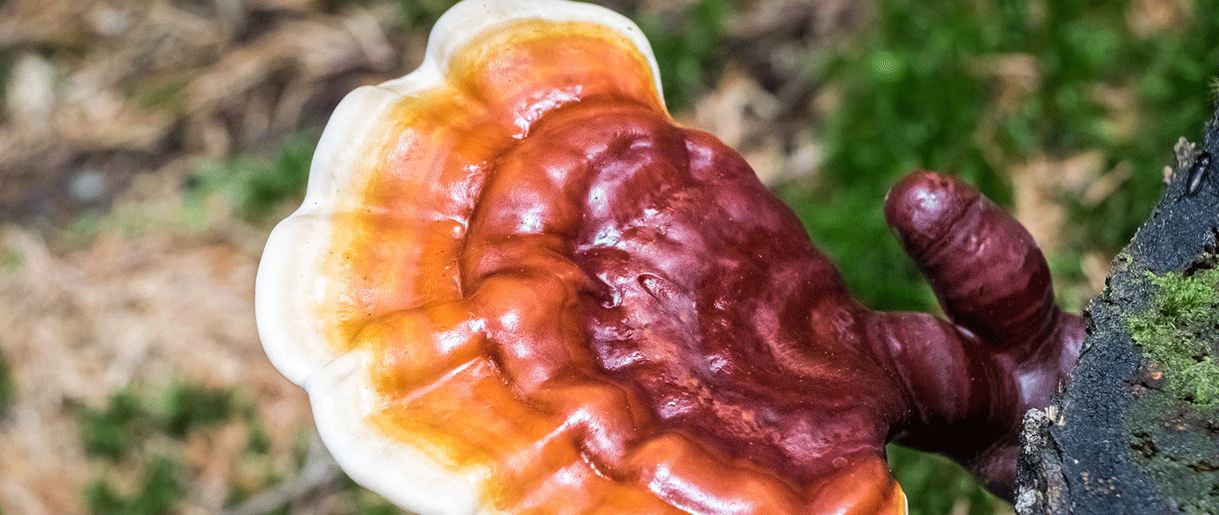

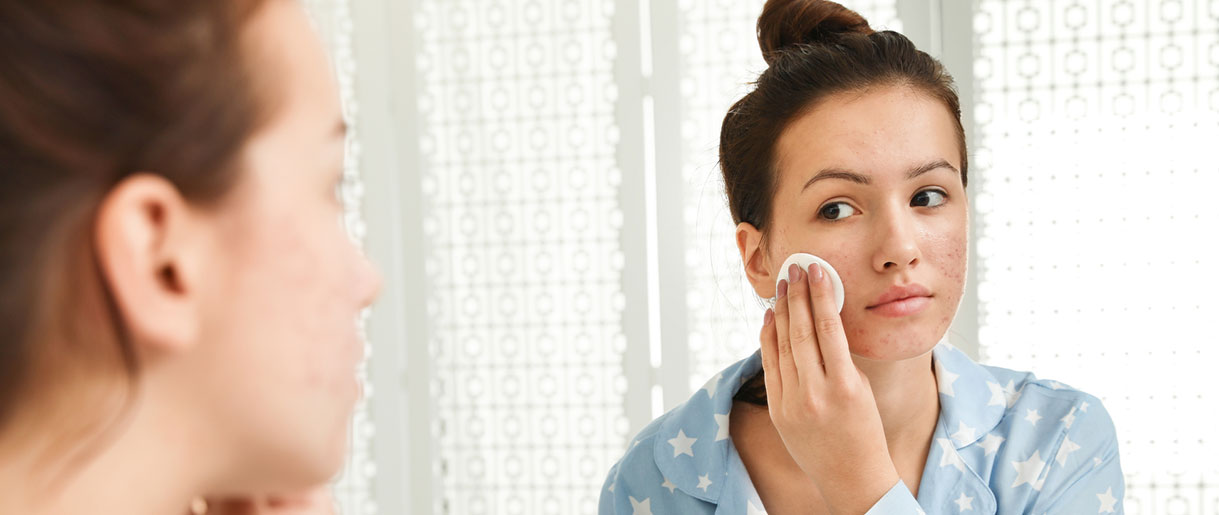
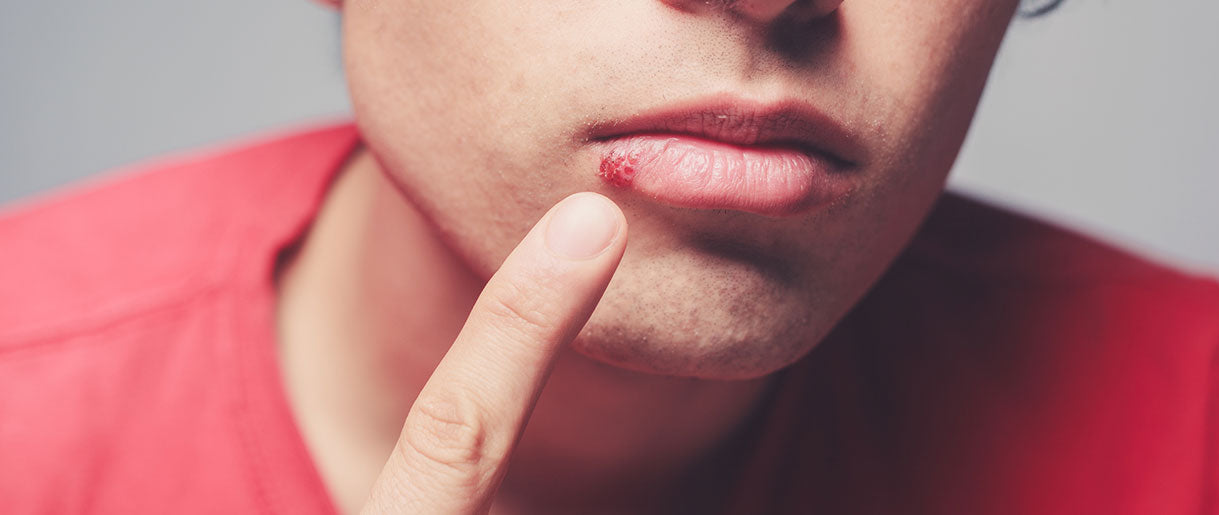
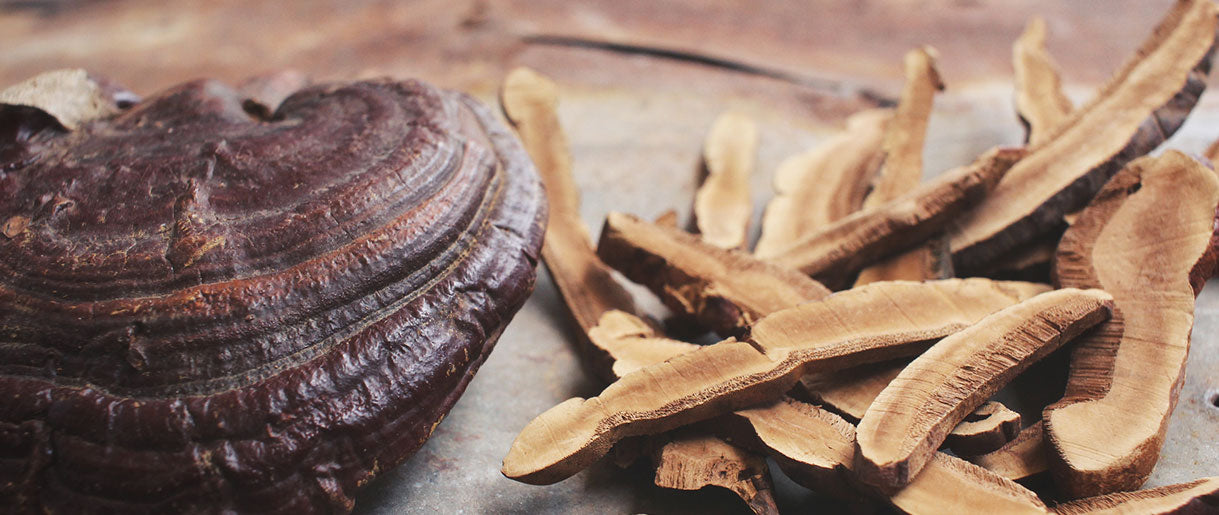
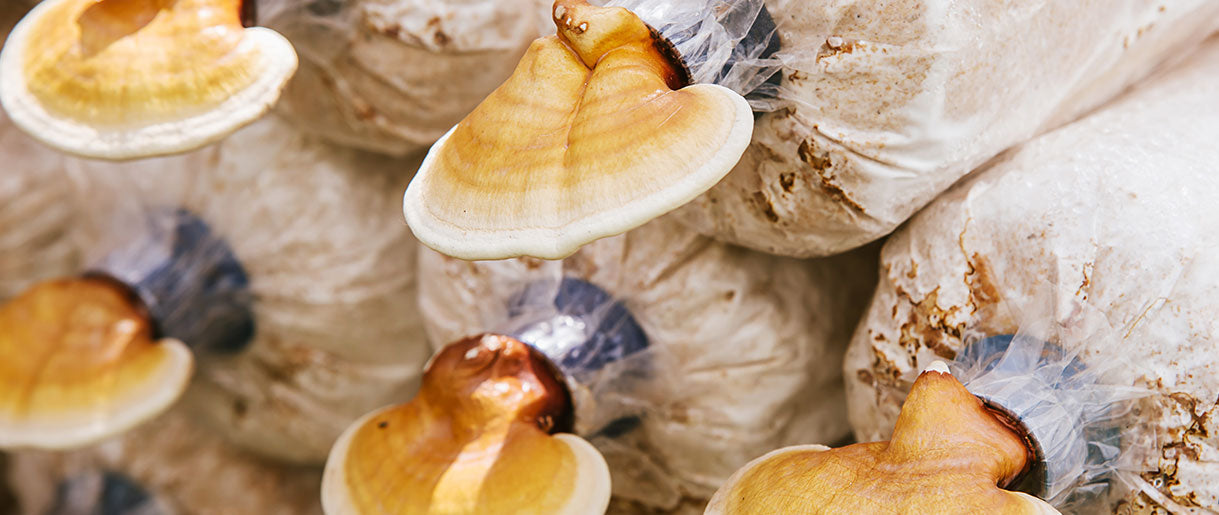
Let Us Know Your Comments